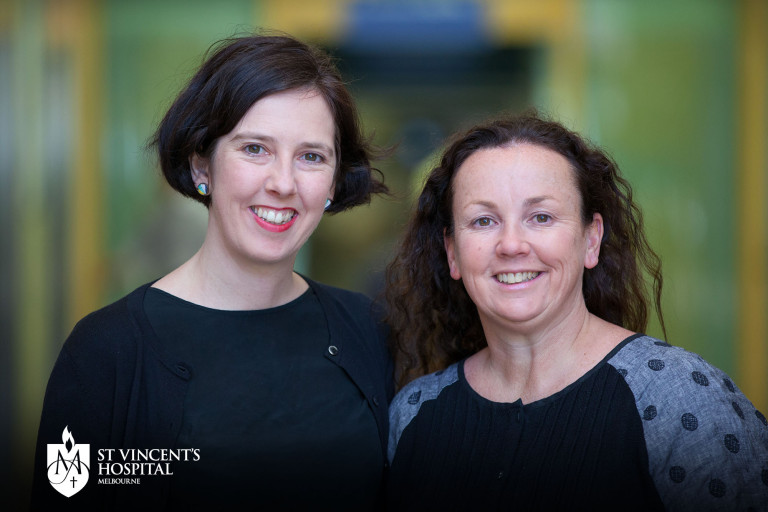Research estimates that five per cent of older people may be at risk of abuse, neglect and exploitation by someone known or trusted by them. Older adults who are subject to elder abuse face a greater risk of being hospitalised than other seniors (Dong & Simon 2013).
There is increasing recognition of the importance of the role of health services in responding to family violence. The St Vincent’s Social Work team are leading the way, implementing staff training, a policy and a model of care for the protection and support of vulnerable older people.
‘Elder abuse is often hidden or unnoticed. Older people may feel shame or fear and may be more comfortable raising their worries with a health professional. This can provide a ‘window of opportunity’ for hospitals to identify and respond to older people who are at risk or experiencing abuse,’ says Senior Social Worker Meghan O’Brien.
In 2013, St Vincent’s introduced a hospital-wide elder abuse policy, which included:
- the establishment of a coordination and response group with high-level participation to review suspected cases of abuse
- a model of care which supports staff to identify pathways for intervention based on the will and preferences of the patient, and undertake safety planning
- notification of all suspected, confirmed or witnessed cases of elder abuse to the coordination and response group
- a training framework focused on addressing the different roles and responsibilities of staff, including clinicians.
St Vincent’s has demonstrated that the model of care has the capacity to strengthen health professionals’ capacity to respond (detection, assessment and intervention) to suspected elder abuse for older people through the sharing of clinical expertise, resources, tools, data collection processes and strategies to strengthen active participation within an organisation.
 Lauren Gordon and Meghan O’Brien
Lauren Gordon and Meghan O’Brien
Meghan O’Brien and other St Vincent’s staff contributed to a St Vincent’s Health Australia submission to the Victorian Royal Commission into Family Violence in May 2015. Meghan presented her work from her PhD study and research outcomes at the Royal Commission in August 2015. The Report of the Royal Commission highlighted the important role of health services in responding to family violence and endorsed the St Vincent’s elder abuse framework, suggesting the model be adapted for use in other hospitals and other environments such as aged care.
Health Justice Partnership
In January 2016, SVHM established a Health Justice Partnership with Justice Connect: Seniors Law which focuses on providing legal support for SVHM patients at risk of elder abuse. The partnership is the first of its kind in Australia to be established with a focus on an innovative and system wide response to older people presenting at risk of elder abuse in a hospital setting.
Health problems and legal issues can be interconnected. A frail older person experiencing poor health and/or abuse from a family member may require both medical support and legal advice. Justice Connect Seniors Law brings valuable experience in providing legal assistance to older people.
The service provides free and confidential advice to St Vincent’s inpatients as well as patients accessing the hospital’s various clinics and community programs. Pro Bono lawyers from private firms are available to take on ongoing casework.
Health Justice Partnership lawyer Lauren Gordon works with the social work team three days a week. ‘I’ve had increasing contact with health professionals across teams as they become aware of my role, and through that, I am meeting with older patients in hospital, and at home, patients who otherwise would have been unlikely to seek out legal advice.’
A significant part of the work is in providing health professionals with secondary consultations in matters where patients have legal issues.
Social Worker Katrina Rushworth says the service provides a timely opportunity to work with patients in hospital before they go home.
‘The benefit of getting legal help in hospital is that it creates an opportunity, a safe space to get someone legal advice they might not necessarily be able to get when they go home.’
Share this:





